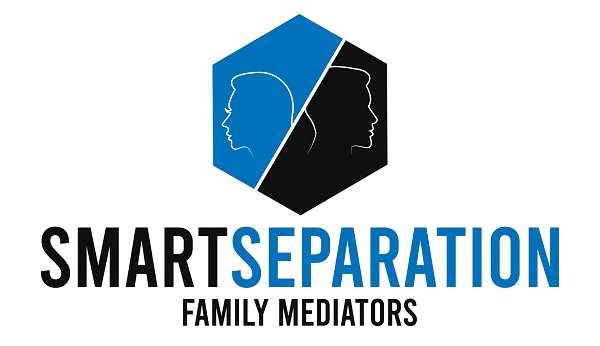What to Bring to Your First Mediation Meeting
Identification and Contact Information
Start by bringing a government-issued photo ID (such as a driver’s licence or passport) to verify your identity. You should also have your current contact details on hand, including your address, phone number, and email.
Financial Documents: Income, Debts, Assets
Financial transparency is crucial in mediation. Full financial disclosure is a legal requirement under Ontario family law and helps ensure any agreement reached is fair and legally enforceable.
Existing Court Orders or Agreements
If you and your spouse already have any existing court orders, separation agreements, parenting plans, or child/spousal support arrangements, provide copies to the mediator. These documents help establish the current legal or practical framework and highlight what issues have already been addressed and what still needs resolution.
A List of Issues or Concerns You Wish to Address
Before the session, take time to reflect on your priorities. Create a written list of the key issues you’d like to discuss—whether it’s parenting schedules, division of property, communication challenges, or financial support. Having a clear outline of your concerns allows the mediator to structure the session efficiently and ensures that your voice is heard throughout the process.
How to Mentally and Emotionally Prepare
Setting Realistic Goals for the Session
It’s important to enter mediation with clear, realistic expectations. You likely won’t resolve every issue in one session, but progress can be made. Focus on the goals that matter most—such as reaching a temporary parenting arrangement or starting the discussion on finances. Be prepared to work toward long-term solutions over several meetings, with guidance from your Toronto family mediator.
Managing Emotions and Conflict
Separation can bring up strong emotions like anger, sadness, or frustration. While these feelings are valid, managing them during mediation is key to making productive progress. Techniques like deep breathing, taking breaks, or writing down your thoughts in advance can help you stay grounded. Mediators are trained to manage conflict and will help maintain a respectful, balanced atmosphere throughout the session.
Preparing to Listen and Compromise
Mediation works best when both parties are open to listening and finding common ground. It’s not about “winning” but about reaching an agreement that works for everyone—especially when children are involved. Try to understand the other person’s perspective, and be ready to make reasonable compromises. Remember, your Toronto family mediator is there to support a fair, balanced dialogue that leads to practical outcomes.
Questions to Ask Your Mediator
Their Qualifications and Experience in Ontario
Start by asking about the mediator’s background. Are they accredited by an organization such as the Ontario Association for Family Mediation (OAFM) or ADR Institute of Ontario? How many years have they been mediating family disputes in Ontario? Experience with local laws, court systems, and family dynamics in Toronto can be an asset when navigating complex issues.
Mediation Process and Session Structure
Find out how the mediation process typically unfolds. Will the mediator meet with both parties together, or separately for intake sessions first? How long are the sessions, and how many are usually needed to resolve common issues? Understanding the structure will help you mentally prepare and set appropriate expectations.
Fees, Scheduling, and Expected Timeline
Ask about the cost of each session, payment methods, and whether sliding scale fees are available. Also clarify how soon you can begin, how flexible the scheduling is, and how long the overall process may take. Every case is unique, but getting a general sense of the timeline can help you plan accordingly.
Confidentiality and How Outcomes Are Documented
Clarify what information is kept confidential and what exceptions exist (e.g., threats of harm or child safety concerns). Ask how agreements are recorded—do they provide a written summary or Memorandum of Understanding (MOU)? And can that document be turned into a legally binding separation agreement later on with legal advice?
Legal Considerations Before and After Mediation
When to Seek Independent Legal Advice
In Ontario, it’s strongly recommended that each party obtain independent legal advice (ILA) before signing any final agreement that comes out of mediation. A lawyer can explain your rights and obligations, ensure the agreement is fair, and confirm that you understand the legal consequences of the terms. ILA also helps protect the agreement from future legal challenges by showing that both parties entered it voluntarily and with full understanding.
How Mediated Agreements Can Be Made Legally Binding in Ontario
At the end of mediation, the Toronto family mediator typically prepares a Memorandum of Understanding (MOU) or a mediation summary, outlining the decisions you’ve made. This document is not legally binding on its own. To turn it into an enforceable contract, it must be reviewed and drafted into a formal separation agreement—ideally with legal assistance—and signed by both parties in the presence of witnesses. Once signed, it becomes a legally binding domestic contract under Ontario’s Family Law Act.
Next Steps If No Agreement Is Reached
Not all mediations result in a full agreement—and that’s okay. If you’re unable to resolve all or some of the issues, the mediator may refer you to alternative options, such as arbitration, collaborative law, or litigation. You can still use any partial agreements as a foundation for further negotiations or as evidence of good-faith efforts in court.
Tips for a Productive Mediation Session
Arrive with an Open Mind and Respectful Attitude
Mediation is built on cooperation. Enter the session ready to listen, consider new perspectives, and engage respectfully with your former partner—even if emotions are running high. The Toronto family mediator will help guide the conversation, but maintaining a courteous tone yourself can make a big difference in reaching an agreement.
Stay Focused on the Future and Your Children (If Applicable)
Try to shift the conversation away from past grievances and toward future goals. If children are involved, keep their well-being at the centre of every decision. Mediation offers a chance to create parenting arrangements that minimize conflict and support healthy co-parenting relationships.
Keep Communication Clear and Constructive
Use “I” statements to express your needs and concerns without escalating tension. Instead of saying, “You never listen,” try “I feel unheard when my concerns aren’t acknowledged.” Stay on topic, avoid interruptions, and take breaks if needed to regroup. Clear, calm communication helps your Toronto family mediator support you both in finding fair and lasting solutions.
As an experienced family and divorce mediator in Toronto, I often write blogs to provide insights, tips, and resources on family mediation and divorce in Ontario. Follow my blog to stay informed and empowered during challenging times.



